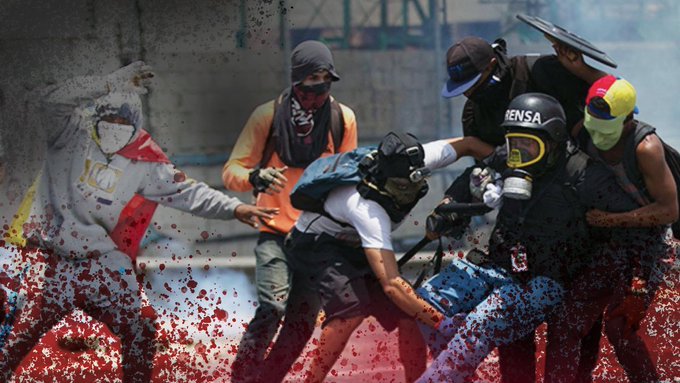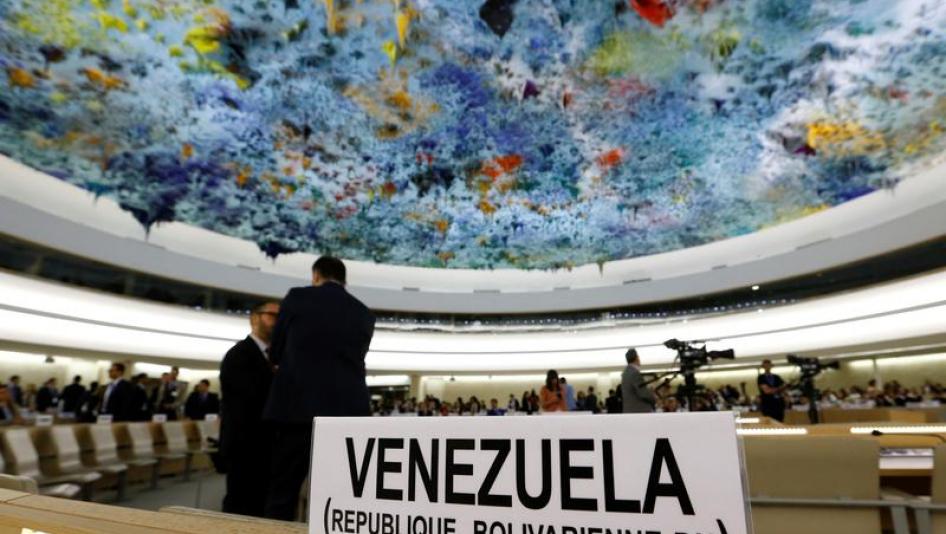The Global Centre for the Responsibility to Protect (R2P) published its new bimonthly bulletin “R2P Monitor”, which aims to warn of possible crises that could escalate to mass atrocity crimes.
The R2P Monitor establishes 3 categories to analyze and suggest possible lines of action to halt the escalation of a crisis or put an end to the massive violation of human rights. These are Current Crisis, where mass atrocity crimes are occurring and urgent action is needed; Imminent Risk, when the situation is reaching a critical threshold and the risk of mass atrocity crimes occurring in the immediate future is very high if effective preventive action is not taken, and Serious Concern, when there is a significant risk of occurrence, or recurrence, of mass atrocity crimes within the foreseeable future if effective action is not taken.
In the latest issue (N ° 55) the Global Centre for the R2P classifies Venezuela as a country with a current crisis, along with Afghanistan, Cameroon, the Central Sahel, China, the Democratic Republic of the Congo, Syria, and Yemen.
Analysis
The FFM’s findings suggest that widespread impunity has emboldened state agents to continue perpetrating extrajudicial killings, torture and other crimes. The Maduro government refuses to fully cooperate with the FFM and other international human rights mechanisms.
The political crisis in Venezuela escalated during January 2019 when President Maduro was sworn in for a second term amidst allegations of electoral fraud. More than 50 countries recognized the leader of the National Assembly, Juan Guaidó, as “caretaker” President instead. Despite international isolation, the Maduro government remains in control of key state institutions and the security forces. The political deadlock between the government and divided opposition parties intensified after the 6 December elections, when President Maduro and allied parties regained control of the National Assembly in elections that were criticized internationally for lacking the minimal conditions for a free and fair vote.
The government is failing to uphold its responsibility to protect all Venezuelans regardless of political affiliation.
International response
Since November 2017 the European Union (EU) has imposed asset freezes on 36 senior government officials. The US government has imposed extensive sanctions on President Maduro, his family and senior members of his government, as well as broader sanctions that have exacerbated the humanitarian crisis.
On 26 September 2018 Argentina, Canada, Chile, Colombia, Paraguay and Peru requested that the Chief Prosecutor of the ICC open a formal investigation into possible crimes against humanity in Venezuela.
On 27 September 2019 the HRC adopted a resolution establishing the FFM, which is currently mandated to investigate extrajudicial executions, enforced disappearances, arbitrary detentions and torture and ill-treatment, including sexual and gender-based violence. The mandate of the FFM was renewed for two years on 6 October 2020.
Necessary actions
The government must end the systematic persecution of its perceived opponents, dissolve the Special Action Forces and ensure impartial investigations of all extrajudicial killings and other widespread violations and abuses of human rights. The government should grant the FFM unrestricted access to the country and fully cooperate with all UN mechanisms.
The government and opposition should commit to renewed dialogue, focusing on the urgent provision of life-saving humanitarian assistance to populations in need. Any negotiation should include the representation of Venezuelan civil society.
States should continue to impose targeted sanctions on senior government officials responsible for systematic violations and abuses of human rights, but lift measures that may further limit the population’s access to basic goods and services. In the absence of domestic accountability mechanisms, states should also consider taking legal action, including under universal jurisdiction, against those responsible for extrajudicial killings, torture and other crimes against humanity.
Read the full bulletin HERE.
Translated by José Rafael Medina




